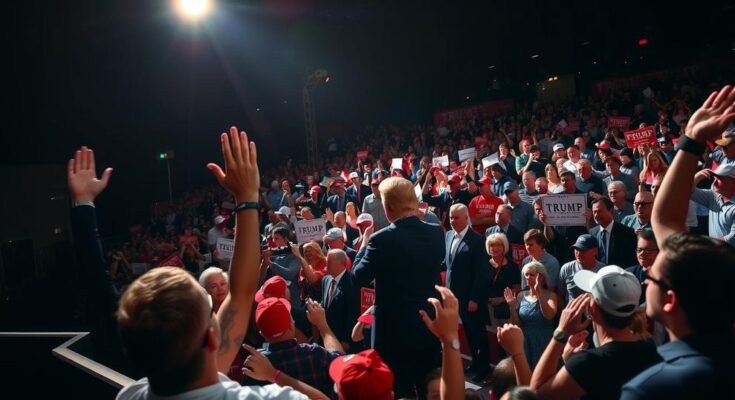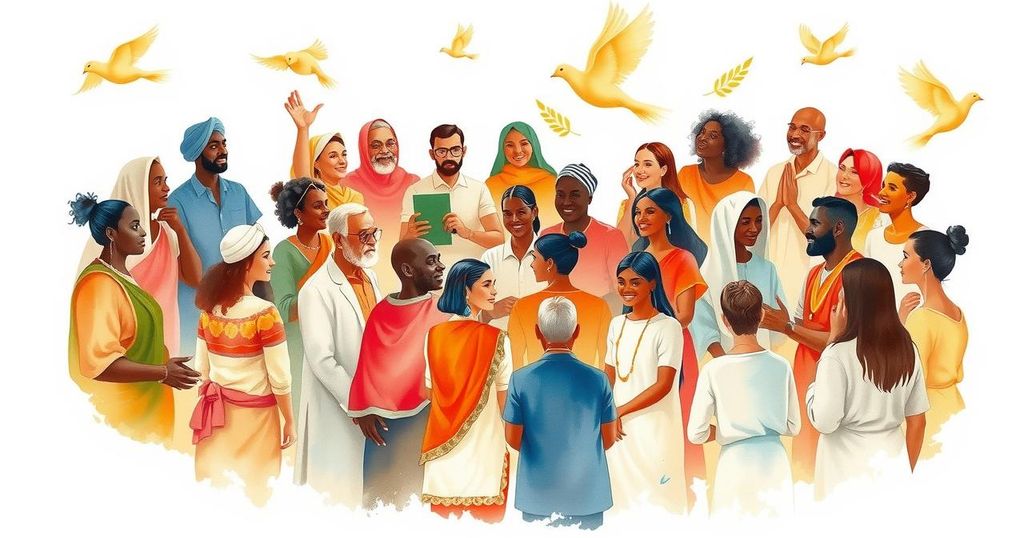As Election Day approaches, Donald Trump faces criticism for failing to denounce racist comments made by comedian Tony Hinchcliffe at his rally, where Hinchcliffe referred to Puerto Rico derogatorily. Trump claims he did not hear the remarks, while Kamala Harris prepares to deliver her closing arguments for her campaign, focusing on unity and economic priorities. Early voting shows significant engagement, highlighting the importance of outreach to diverse communities, including Puerto Rican Americans.
In the lead-up to the upcoming election, Donald Trump faced scrutiny regarding his response to racist comments made by comedian Tony Hinchcliffe during a rally. Speaking to Rachel Scott from ABC, Trump claimed he did not hear Hinchcliffe’s remarks, particularly those referring to Puerto Rico as an “island of floating garbage.” Despite the widespread media coverage of the comments, Trump stated, “I don’t know him, someone put him up there. I don’t know who he is,” indicating a lack of acknowledgment of the situation. He maintained confidence in his electoral prospects as Election Day approaches. Meanwhile, Vice President Kamala Harris is scheduled to deliver her “closing argument” at The Ellipse, focusing on her vision for the country and contrasting Trump’s approach with her commitment to prioritizing the middle class and advancing an opportunity economy. The political atmosphere is further intensified by early voting numbers, which have surpassed 47 million. Pennsylvania’s significant Puerto Rican population and recent comments from Governor Josh Shapiro emphasize the importance of this demographic in the electoral landscape. This incident reflects broader themes of divisive rhetoric in the current election cycle, as former President Barack Obama criticized Trump’s anti-immigrant remarks during Harris’s campaign events. As Trump prepares to address the media in Florida before traveling to Pennsylvania, he and his campaign attempt to distance themselves from Hinchcliffe’s remarks, with notable figures like Ohio Senator JD Vance suggesting the public should not be easily offended by such comments. However, the reactions to the rally highlight ongoing concerns regarding the treatment of minority communities in political discourse during this pivotal election.
The 2024 presidential election is heating up, with candidates making significant appearances to sway voters just one week before Election Day. The political discourse has intensified surrounding remarks made at rallies, particularly those that may be deemed offensive or discriminatory. Issues of race and immigration have become focal points in campaign conversations, influencing voter sentiments. The growing early voting numbers demonstrate an engaged electorate, while candidates aim to solidify their stances and rally support amidst heightened scrutiny.
In summary, the events surrounding Donald Trump’s disavowal of offensive comments made at his rally, alongside the contrasting political messaging from Kamala Harris, illustrate the contentious atmosphere leading up to the election. As early voting continues, candidates’ approaches to race and immigration will undoubtedly impact voter perceptions and participation. The upcoming rallies and speeches will serve as critical platforms for candidates to define their narratives and address the expectations of a diverse electorate.
Original Source: abcnews.go.com




